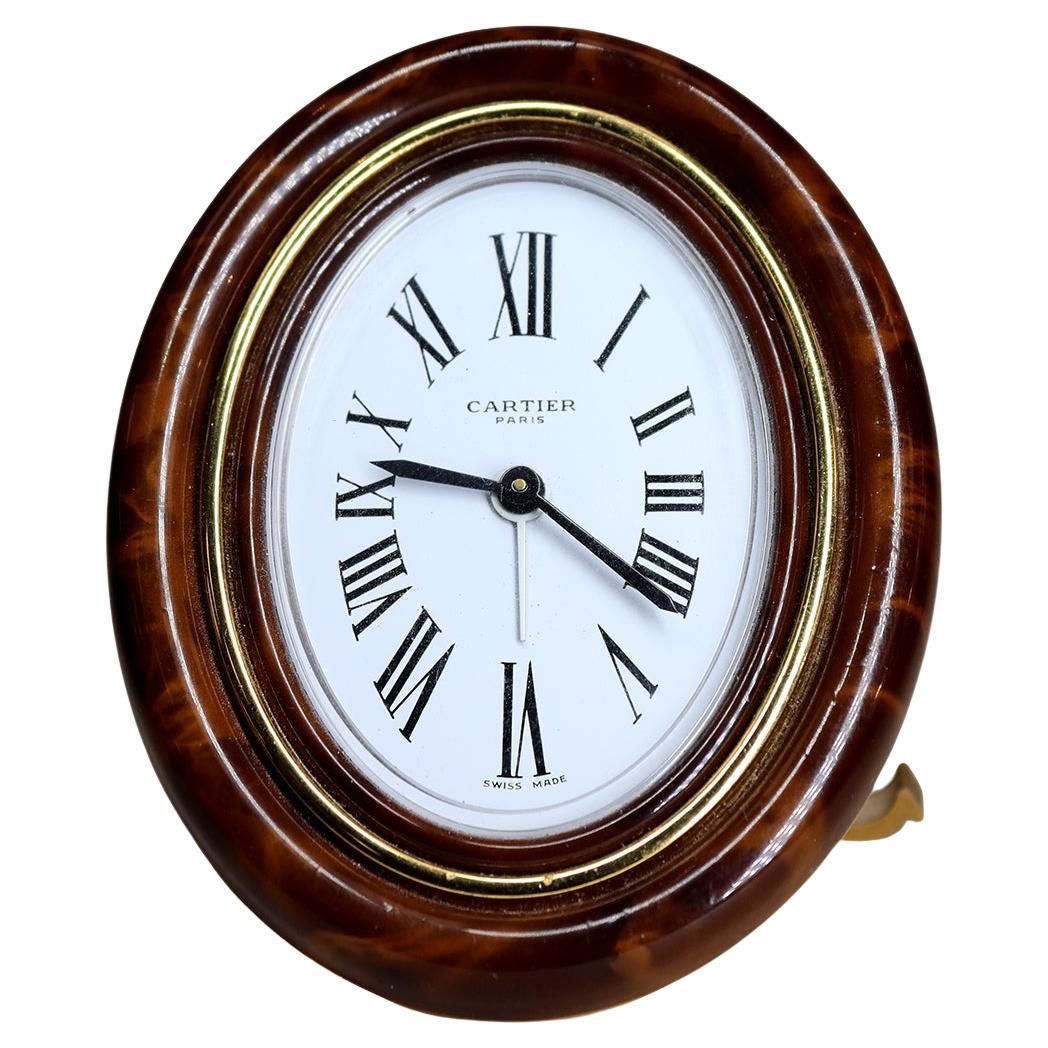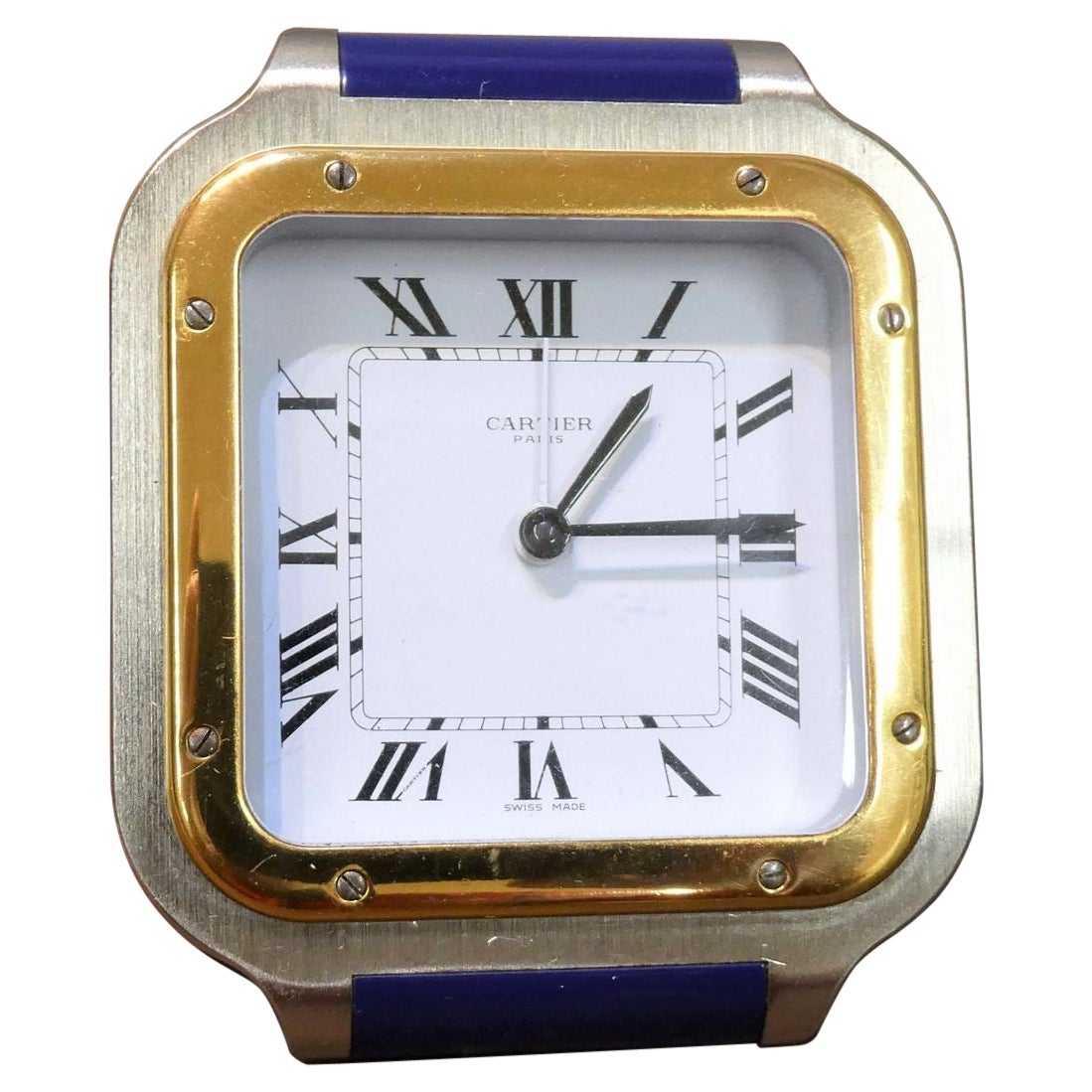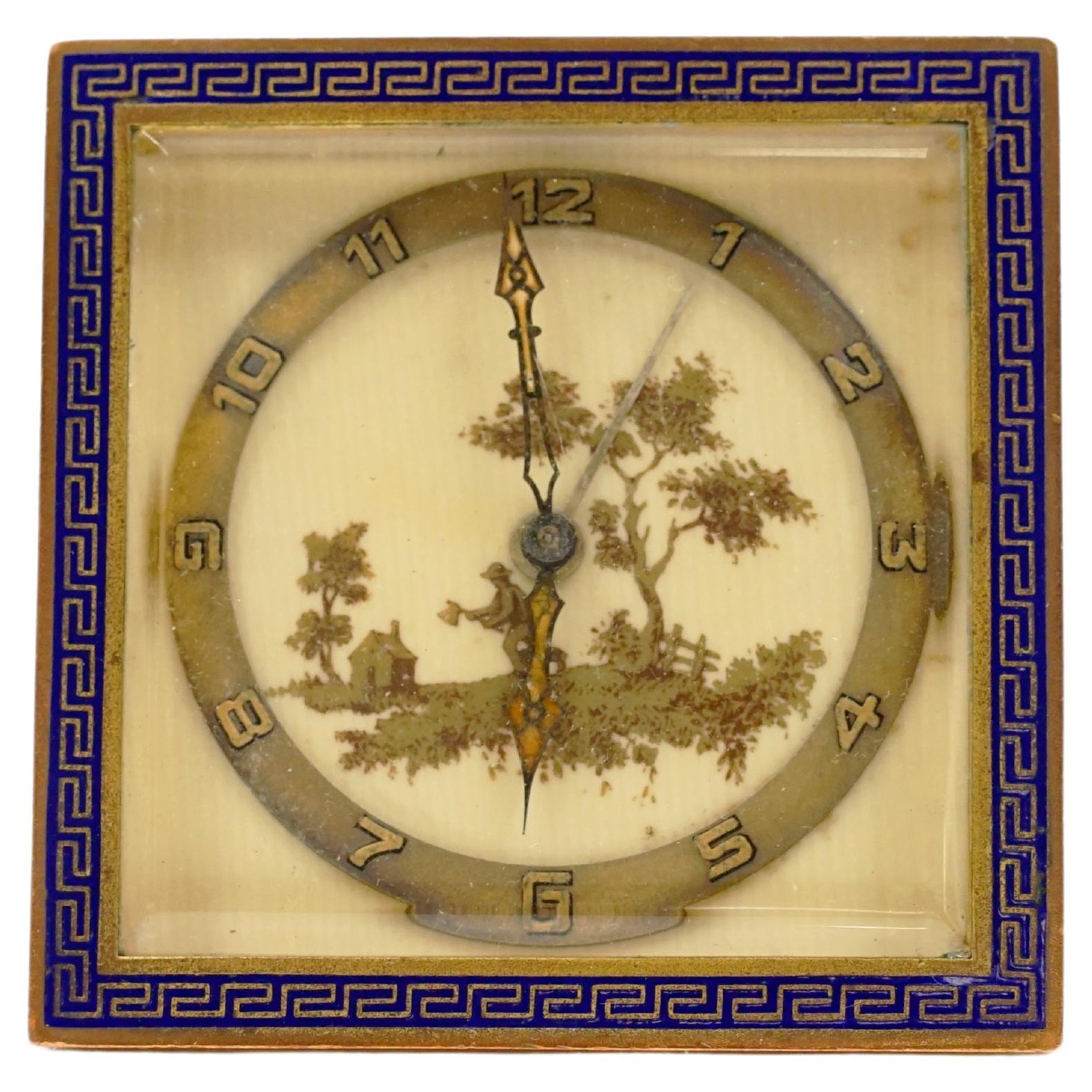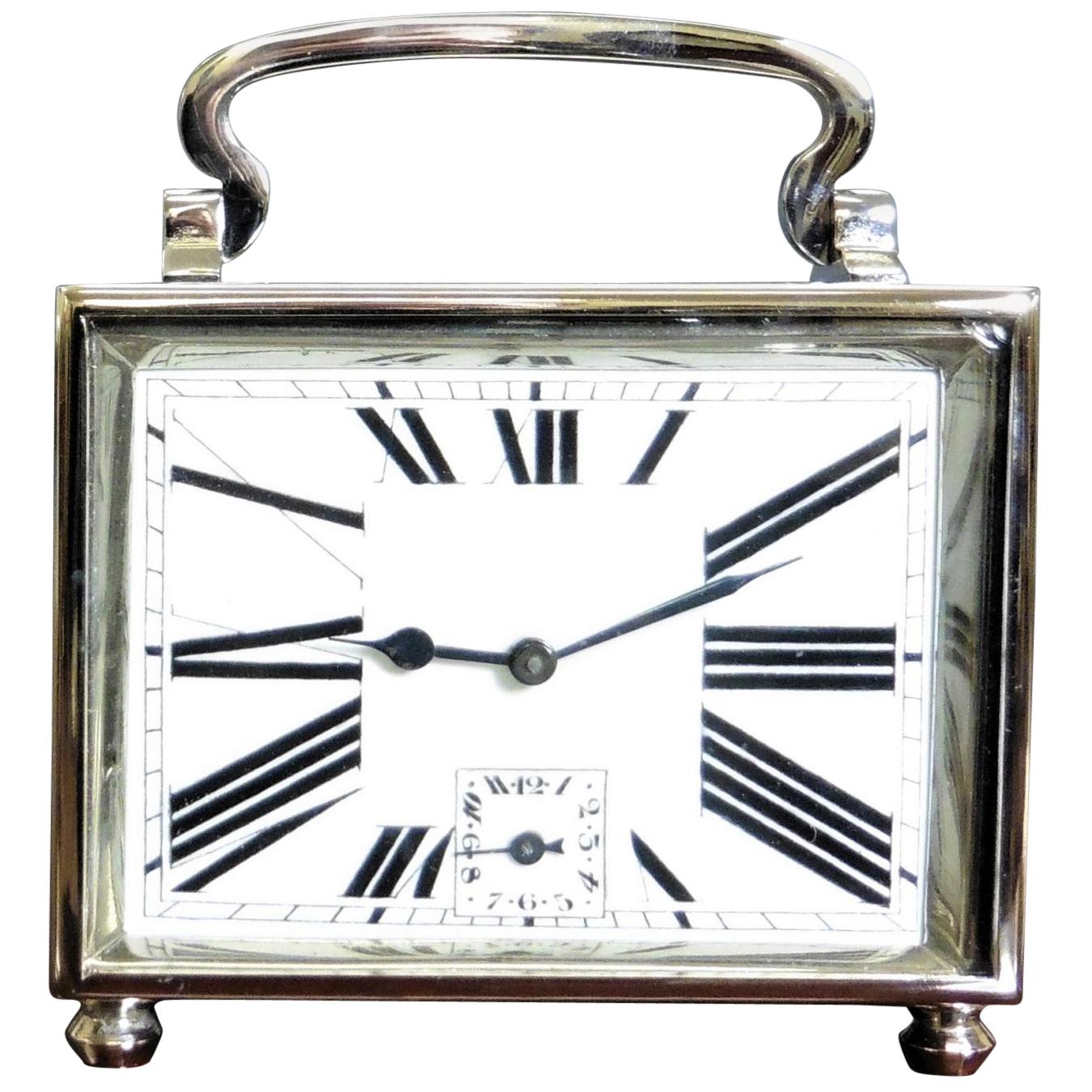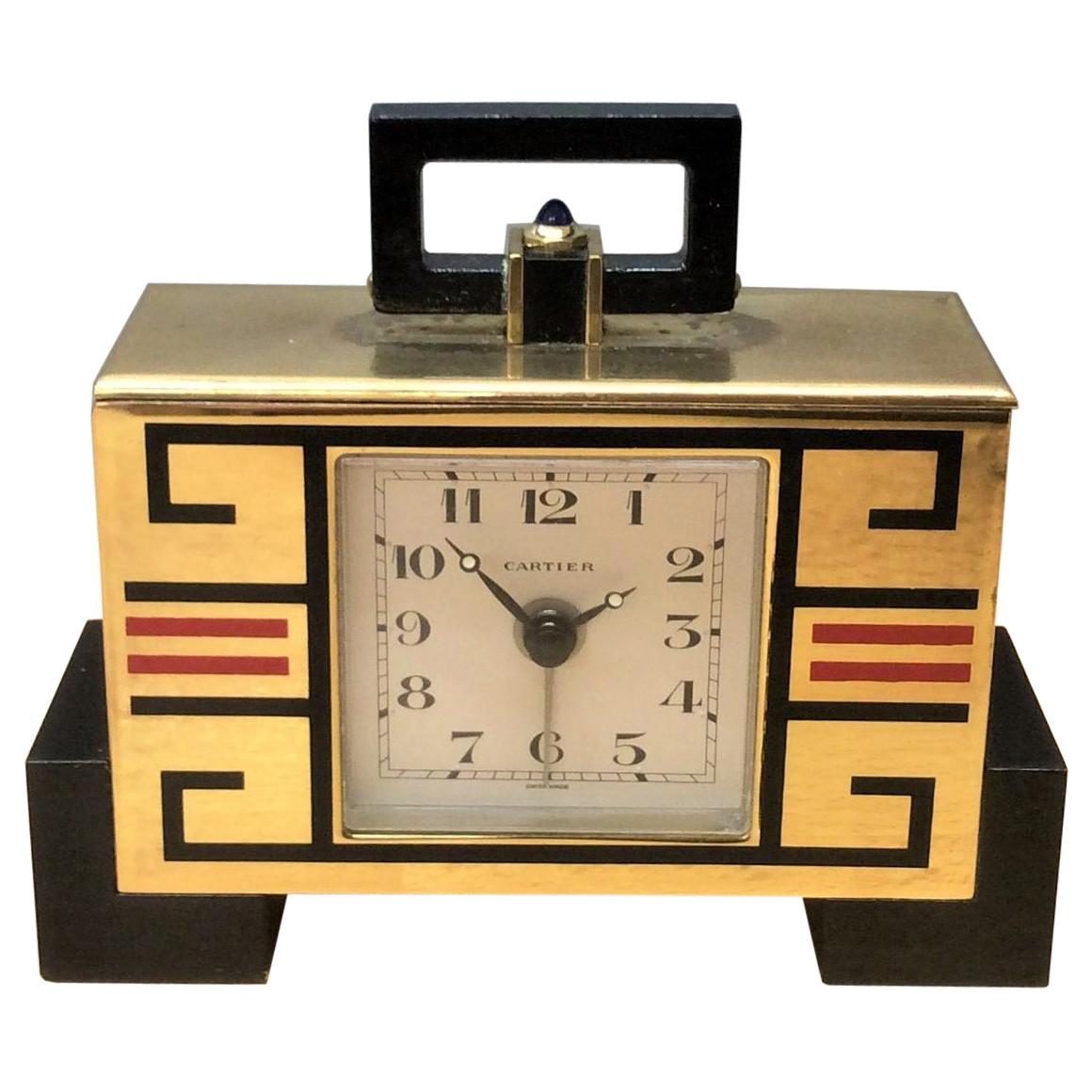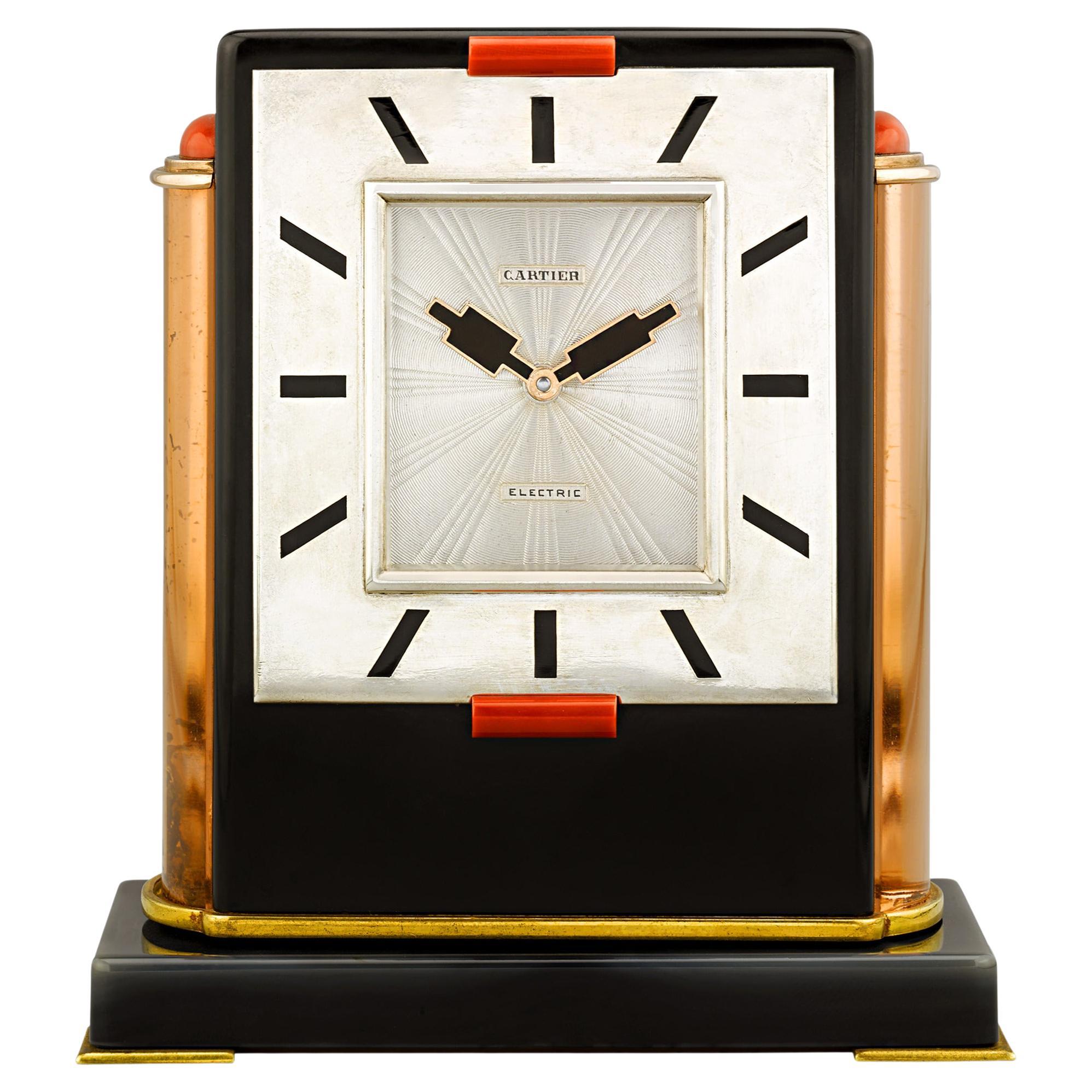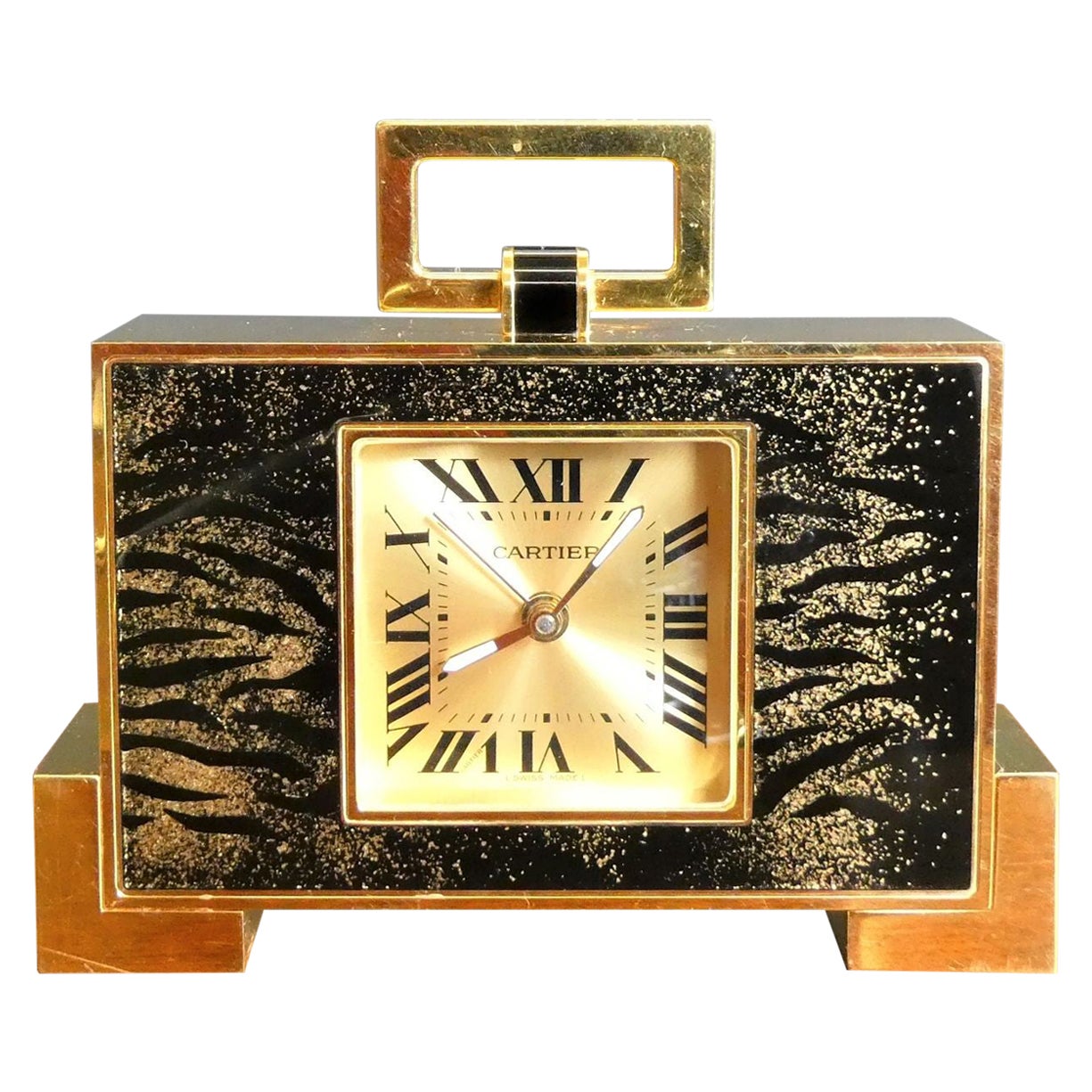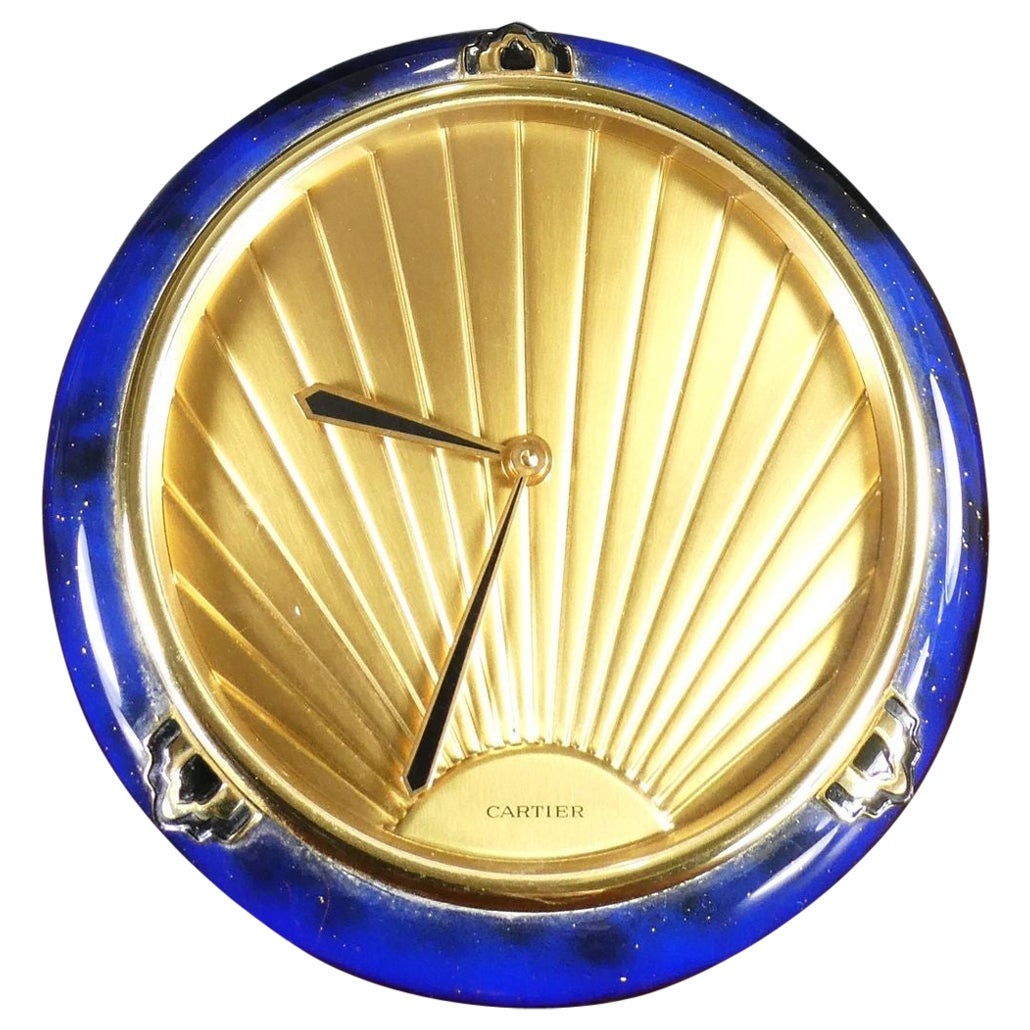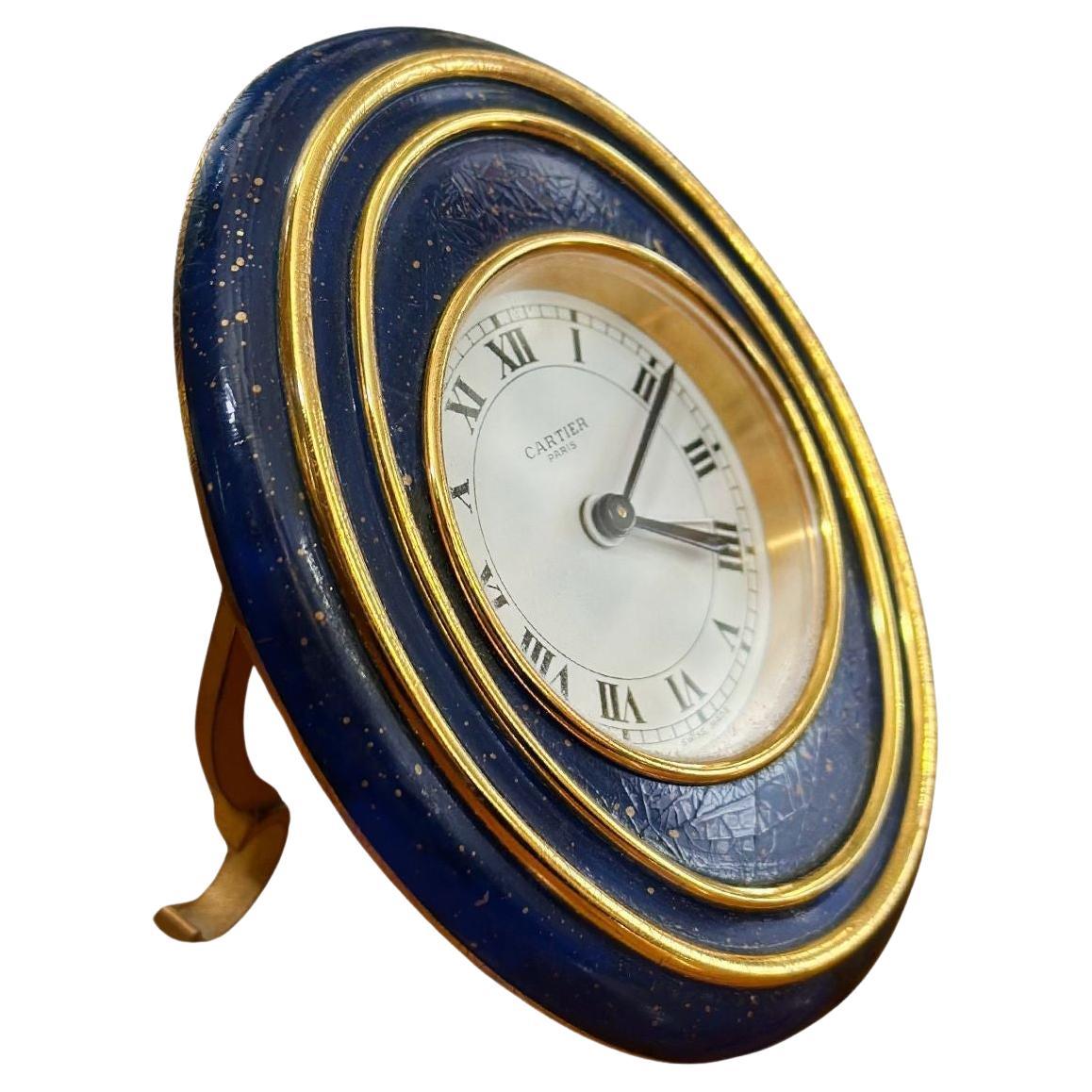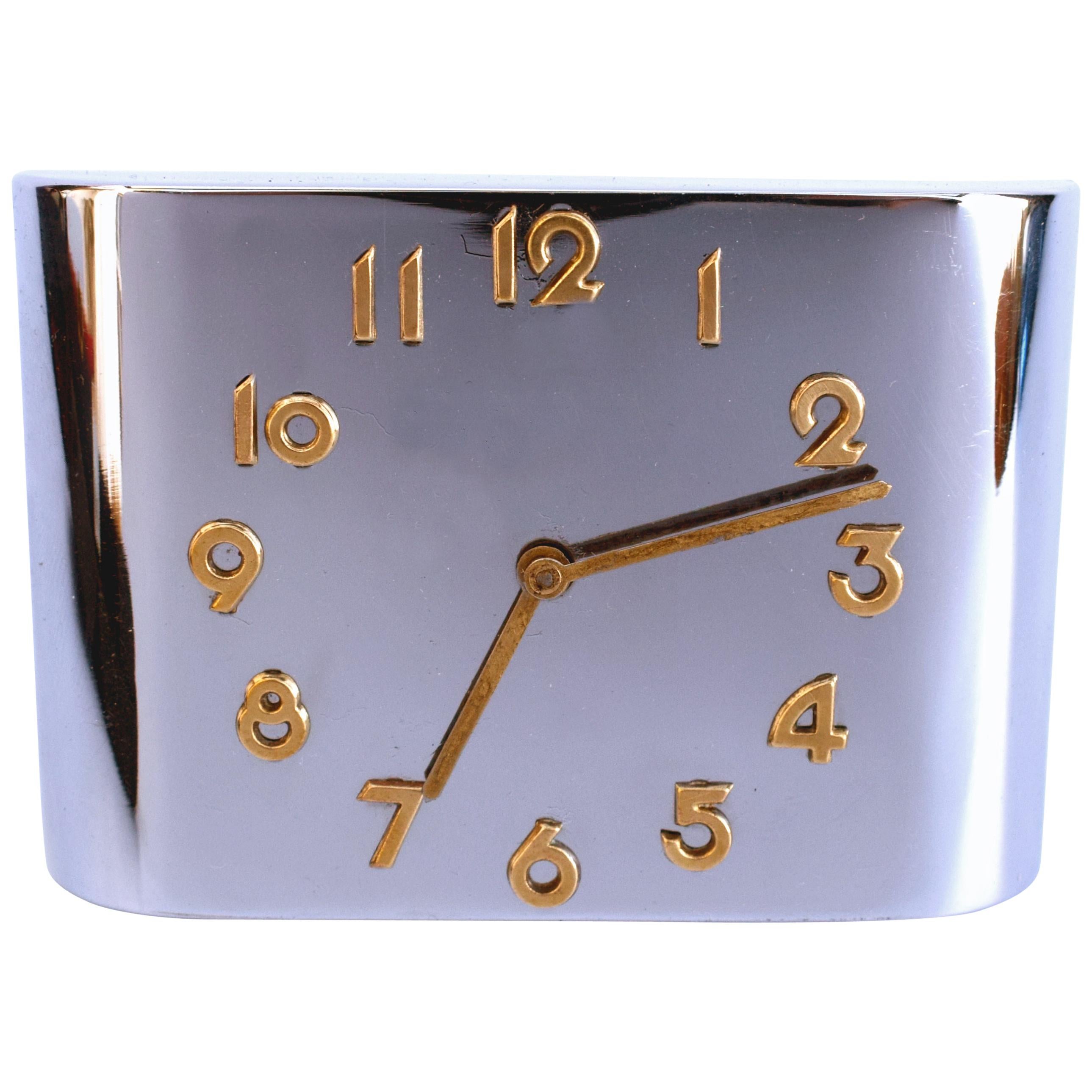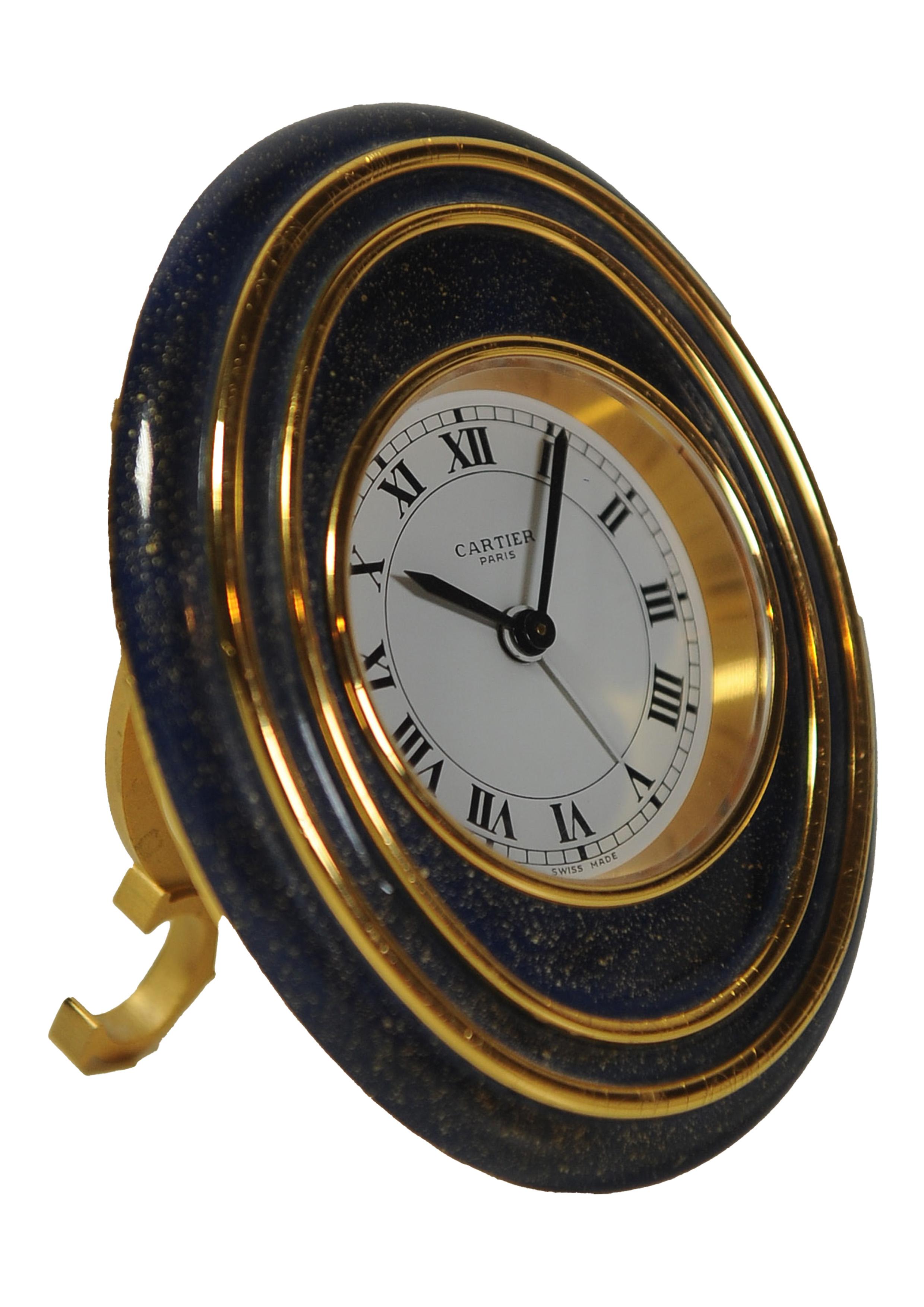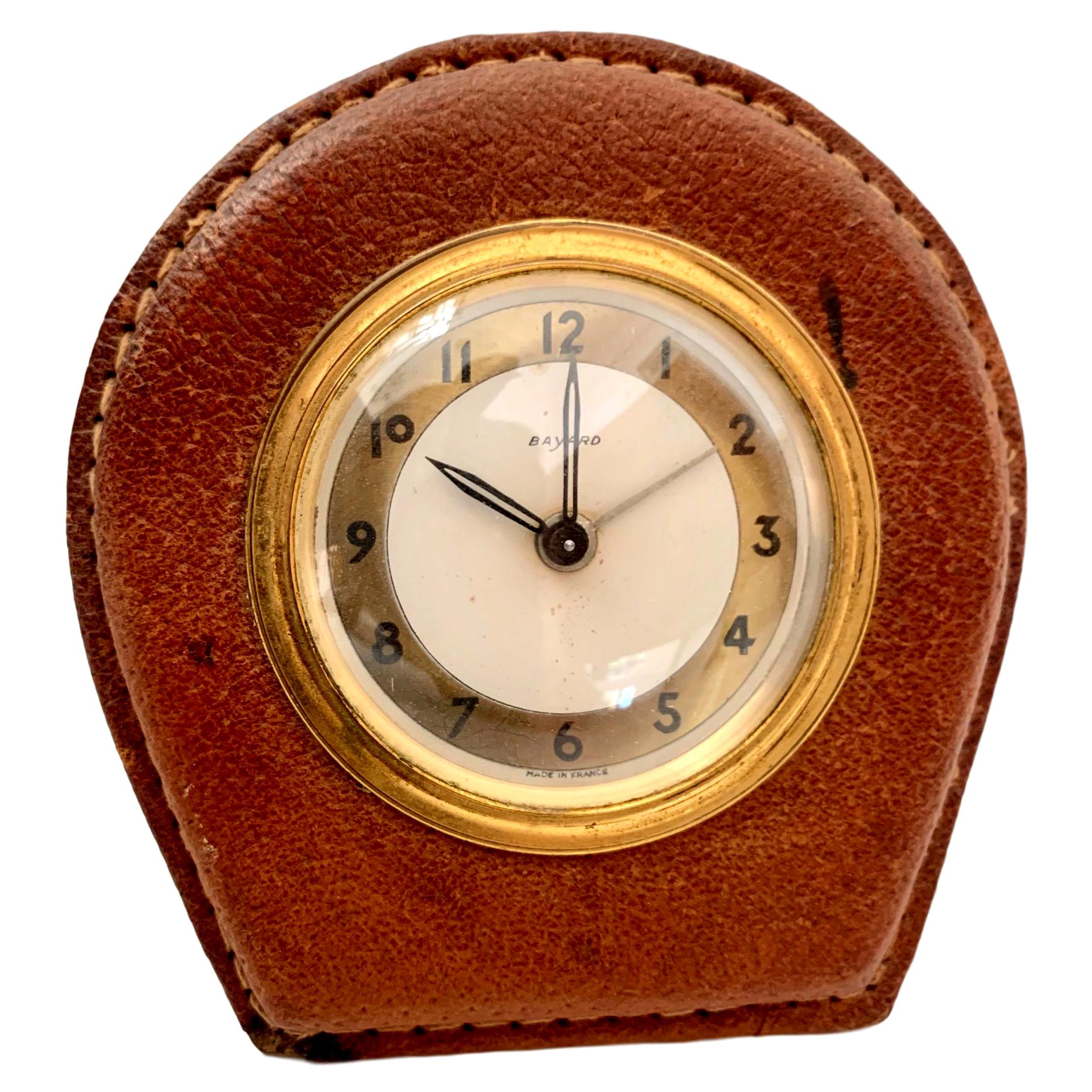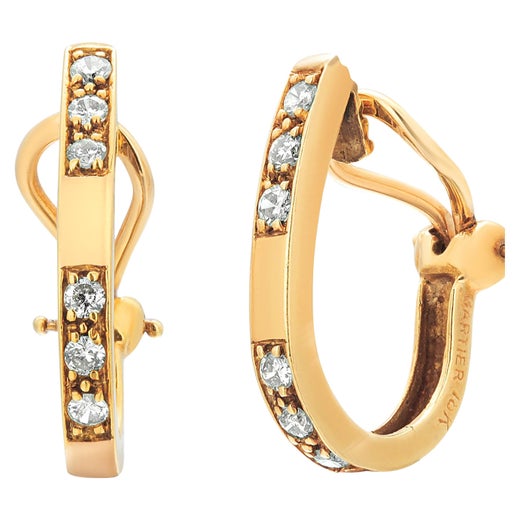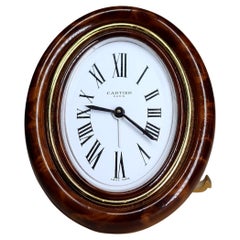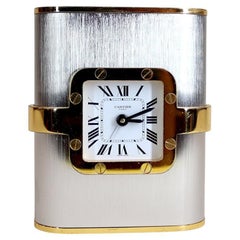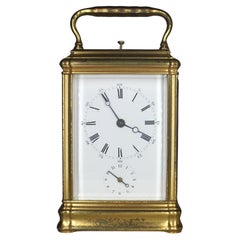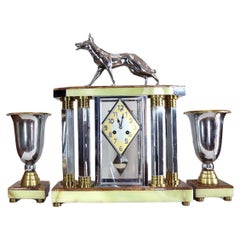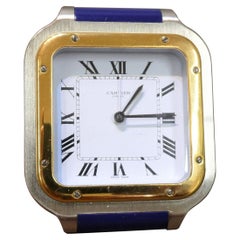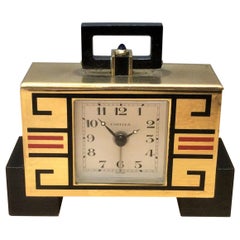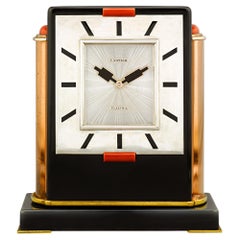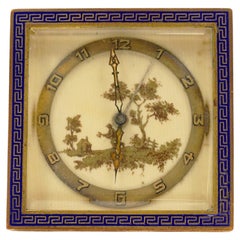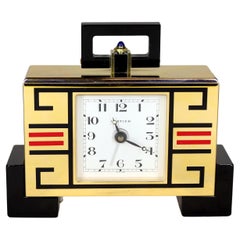
Art Deco Style 'Cube' Alarm Clock by Cartier
View Similar Items
Art Deco Style 'Cube' Alarm Clock by Cartier
About the Item
- Creator:Cartier (Clockmaker)
- Dimensions:Height: 3.35 in (8.5 cm)Width: 3.94 in (10 cm)Depth: 1.19 in (3 cm)
- Style:Art Deco (Of the Period)
- Materials and Techniques:
- Place of Origin:
- Period:1990-1999
- Date of Manufacture:1990
- Condition:
- Seller Location:Amersham, GB
- Reference Number:Seller: 3081stDibs: LU9135241408972
Cartier
For its extraordinary range of bracelets, watches, rings and other adornments, French luxury house Cartier is undeniably one of the most well known and internationally revered jewelers in the world among clients both existing and aspirational.
Perhaps 1847 was not the ideal time to open a new watchmaking and jewelry business, as the French Revolution was not kind to the aristocracy who could afford such luxuries. Nevertheless, it was the year Louis-François Cartier (1819–1904) — who was born into poverty — founded his eponymous empire, assuming control of the workshop of watchmaker Adolphe Picard, under whom he had previously been employed as an assistant. Of course, in the beginning, it was a relatively modest affair, but by the late 1850s, Cartier had its first royal client, Princess Mathilde Bonaparte, niece of Napoleon Bonaparte, who commissioned the jeweler to design brooches, earrings and other accessories.
Under the leadership of Louis-François’s son, Alfred, who took over in 1874, business boomed. Royalty around the world wore Cartier pieces, including Tsar Nicholas II of Russia, the Maharaja of Patiala and King Edward VII, who had 27 tiaras made by the jewelry house for his coronation in 1902 and issued Cartier a royal warrant in 1904. (Today, the British royal family still dons Cartier pieces; Kate Middleton, Duchess of Cambridge, regularly sports a Ballon Bleu de Cartier watch.)
Cartier’s golden years, however, began when Alfred introduced his three sons, Louis, Pierre and Jacques, to the business. The brothers expanded Cartier globally: Louis reigned in Paris, Pierre in New York and Jacques in London, ensuring their brand’s consistency at their branches across the world. The trio also brought in such talents as Charles Jacqueau and Jeanne Toussaint.
One of Cartier’s earliest major successes was the Santos de Cartier watch — one of the world's first modern wristwatches for men. (Previously, a large number of people were using only pocket watches.) Louis designed the timepiece in 1904 for his friend, popular Brazilian aviator Alberto Santos-Dumont, who wanted to be able to check the time more easily while flying.
Cartier’s other famous timepieces include the Tank watch, which was inspired by the linear form of military tanks during World War I, and the so-called mystery clocks. Invented by watchmaker and magician Jean-Eugène Robert-Houdin and later crafted exclusively for Cartier in the house’s workshop by watchmaker Maurice Couët, the mystery clocks were so named because the integration of glass dials on which the clocks’ hands would seemingly float as well as structures that are hidden away within the base give the illusion that they operate without machinery.
On the jewelry side of the business, Cartier’s internationally renowned offerings include the Tutti Frutti collection, which featured colorful carved gemstones inspired by Jacques’s trip to India and grew in popularity during the Art Deco years; the panthère motif, which has been incorporated into everything from brooches to rings; and the Love bracelet, a minimal, modernist locking bangle inspired by medieval chastity belts that transformed fine jewelry.
While the Cartier family sold the business following the death of Pierre in 1964, the brand continues to innovate today, renewing old hits and creating new masterpieces.
Find contemporary and vintage Cartier watches, engagement rings, necklaces and other accessories on 1stDibs.
More From This Seller
View AllVintage 1980s French Other Carriage Clocks and Travel Clocks
Brass, Enamel
1990s Swiss Table Clocks and Desk Clocks
Gold Plate, Silver, Brass, Steel
Antique 1860s French Victorian Carriage Clocks and Travel Clocks
Brass, Steel, Ormolu
Vintage 1920s French Art Deco Mantel Clocks
Onyx, Belgian Black Marble, Brass, Chrome
Vintage 1930s Scottish Art Deco Grandfather Clocks and Longcase Clocks
Brass, Steel
Vintage 1970s Swiss Egyptian Revival Table Clocks and Desk Clocks
Steel
You May Also Like
Vintage 1970s French Carriage Clocks and Travel Clocks
Steel
Vintage 1970s French Art Deco Carriage Clocks and Travel Clocks
Brass
20th Century French Art Deco Table Clocks and Desk Clocks
Silver, Brass
Vintage 1940s German Art Deco Table Clocks and Desk Clocks
Bronze, Enamel
Vintage 1920s British Art Deco Carriage Clocks and Travel Clocks
Chrome
2010s Swiss Carriage Clocks and Travel Clocks
Brass
Recently Viewed
View AllRead More
This Cartier Panthère Watch Is as Effortlessly Elegant as It Is Wearable
Cartier understands the value of preserving the signature codes of great design, and how to tweak it for modern aficionados.
These White Lotus Guests Have the Most Compelling Watches
Throughout the season, timepieces are clues to the characters' character.
